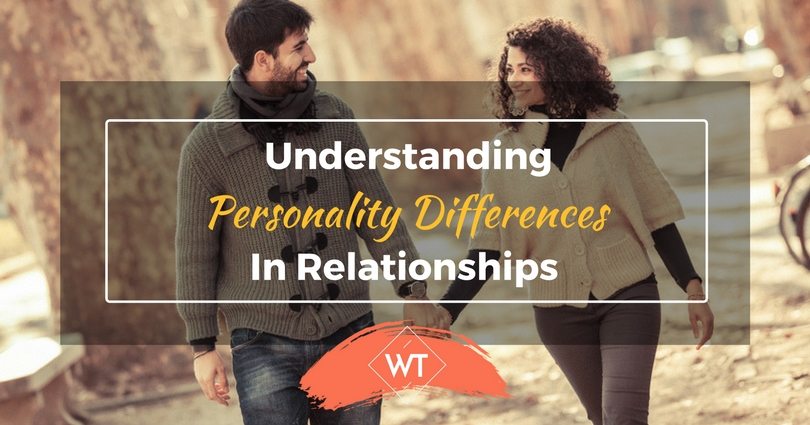Understanding Personality Differences in Relationships

I am an extrovert and my husband is an introvert. He believes in solving problems silently and me in talking it out. He believes in keeping things in place, having an orderly household and I like my messiness around me.
In short, we are a totally different set of personalities, as different as chalk and cheese. We think differently and react differently too, because of our innate personality differences.
Wikipedia defines Personality as ‘a dynamic and organized set of characteristics possessed by a person that uniquely influences his or her cognition motivations, and behaviors in various situations.’ Our marriage (between two people having the most diverse personality differences) works out because we try and understand our partner’s personality characteristics and work out our differences keeping in mind these innate personality differences that, in most cases, cannot be changed.
Some Pointers to Help Understand Your Personality Differences Better
- Personality is structured and remains consistent over time and across situations. Your extroverted spouse will remain an extrovert in daily life situations, as well as in parties, and across all ages; so accept that and let the person be him/her self—it’s what drew you to him/her in the first place.
- The personality of a person is influenced by their genetic makeup, their life experiences, and their psychological framework. So, like you, your spouse is as likely to carry his/her disappointments, frustrations, and insecurities along in daily life.
- Personality, as the reason behind all behaviors, decides how you will react to situations and experiences, and decides your course of action for all stages of life, such as your school activities, your interests, and even your career decisions. Understanding this fact may make you more accepting of your partner’s everyday behaviors—even those quirks you may otherwise find to be the most irritating.
- Personality is also what causes emotional and psychological reactions; feelings; and finally conscious, semiconscious and unconscious thoughts. That is why even married partners react differently to the same events and experiences, like birthdays, anniversaries, and parenting issues.
- Personality patterns are also influenced by hormones, certain medicines taken over a long duration, and illnesses. Remember Lady Macbeth? What you take as the repetitive irrational behavior of your spouse may actually be a personality disorder, or a mental illnesses and may need your support and a consultation with medical personnel. Obsessive Compulsive Disorder and Schizophrenia are examples of behavior-changing personality disorders.
Can You Change A Person You Love?
Can You Change A Person You Love Because You Don’t Get Along With His/her Personality Traits?
For ages scientists and psychologists have debated the topic of ‘nature versus nurture,’ or in other words, if heredity is more important to behavior and personality than environmental factors.
While scientists have cited that biological siblings have similar behavior patterns (as an example of personality patterns being inherited), adopted children picking up traits from their parents and their environment show that personality traits are affected by nurture or environment. In other words, we still don’t know!
So then, in a marriage or a relationship, acceptance works better than aiming to change the behavior or thought pattern of your partner. Why? Personality is more or less inflexible (although certain behavior patterns may change over time).
Accept Your Spouse’s Personality Characteristics
So create space to accommodate your partner’s personality, just as he/she will be doing for you. Look beyond the rough edges and irritating behaviors. Appreciate the innate goodness of him/her that attracted you in the first place, and you’ll be having the most cherished relationship of a lifetime.









Leave a Reply